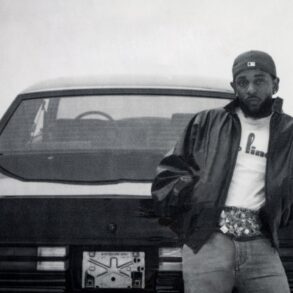
Wilmington has plenty of celebrated and accomplished natives, from sports legends like Michael Jordan to such luminaries as late country star Charlie Daniels.
Much less known is that first female rapper, or MC, in hip-hop history — Sharon Jackson, better known as MC Sha-Rock — also hails from Wilmington. That gives the Port City a seminal connection to the creation of one of the most important musical genres and cultural movements of all time.
“I’m a product of Wilmington, North Carolina,” Jackson said during a phone interview from New York City, where she appears with rapper and actor LL Cool J on his Rock the Bells Radio show for Sirius XM five days a week. “A lot of things that happened in Wilmington, North Carolina, my upbringing and all that stuff, made me the woman I am today.”
Jackson said she might be back in her hometown later this year to shoot scenes for a documentary being made about her. And there are efforts underway to put on an MC Sha-Rock Day and music festival in Wilmington next year, much like the one that New York City has honored Jackson with for six years now, most recently on June 1.

Jackson, who started rapping as a teenager in New York in 1976 or ”77, was an original member of one of the first rap groups: the Funky 4 + 1, which emerged from The Bronx and included Jazzy Jeff, D.J. Breakout, Guy Williams and Keith Keith.
Need a break? Play the USA TODAY Daily Crossword Puzzle.
Jackson is also the first female MC to sign to a record label (Sugar Hill Records in 1979), a participant in the first rap world tour (in 1981) and the first female rapper to perform hip-hop on national television, which she did in 1981 when the Funky 4 + 1 appeared on “Saturday Night Live” (at the 11-minute mark below) with singer Debbie Harry of Blondie.
Jackson also took part in some of the first rap battles ever staged, trading verbal jabs with such legendary names as Grandmaster Flash and the Furious Four.
The Funky 4 + 1’s first single, “That’s the Joint,” came out just a couple of months after the Sugarhill Gang’s pioneering 1979 single “Rapper’s Delight,” so “we were in the first wave of rap songs that came out,” Jackson said.
Last year, a National Public Radio story about Jackson called Jackson “a titanic force in early rap communities” who influenced male and female rappers alike, including Darryl “DMC” McDaniels of rap legends Run-DMC, who has credited Jackson with pioneering the “echo chamber” effect that defined much early hip-hop.
Why Jackson’s connection to Wilmington has taken so long to gain notice is a bit of mystery.
“I’m a hip-hop aficionado and had no clue she was from Wilmington,” said Louis Maynor, aka Louis Tee, a longtime Wilmington hip-hop promoter and, more recently, a stand-up comic.
Maynor said he first learned about Wilmington’s connection to hip-hop history while watching the 2023 Netflix documentary “Ladies First: A Story of Women in Hip Hop,” which Jackson appears in alongside such icons as Queen Latifah and MC Lyte.
Jackson was born Sharon Green in Wilmington in 1962 and “I lived in every project/public housing” in Wilmington, she said, including Hillcrest, Taylor Homes and Jervay.
She attended the former Peabody Elementary School, now Classical Charter Schools of Wilmington, at 507 N. 6th Ave., and she remembers participating in May Day celebrations and attending the Azalea Festival.
When Jackson was 8, she moved with her mother, stepfather and siblings to New York. Until she was 18, however, Jackson said she came back to Wilmington every summer to stay with her grandparents, the late Naomi and Joseph Pryor, on Campbell Street and later Orange Street.
“My mom sent me and my siblings back every year to ensure that we had the Southern roots. And we never forgot where we came from,” Jackson said.
She went with her grandparents to First Baptist Missionary Church on North 5th Avenue. As a teenager, she would go to the historic Black beach spot Seabreeze, near Carolina Beach.
“That was a big spot,” she said.
Before Jackson was a rapper she was a “B-girl,” or break dancer, which she learned on the streets of The Bronx in the mid-1970s.
“I remember coming down to Seabreeze and I used to try to break dance,” she said. “I was trying to bring what we were doing in New York City, but when I went to try to break dance at Seabreeze they were looking at me like I was crazy.”
But Jackson was part of what almost certainly was the first hip-hop show ever in Wilmington on Dec. 29, 1979, when the Funky Four + 1 played a show at the Martin Luther King Jr. Center on South Eight Street.
Once her music career began taking off, Jackson stopped coming back to Wilmington and lost contact with much of her family. “Maybe they probably felt like I was standoffish,” she said.
Hip-hop’s widely publicized 50th anniversary in 2023 spawned media coverage, documentaries and concerts, as well as a renewed interest in the roots of hip-hop and the artists who created it. In interviews, Jackson said she would always say she was from Wilmington, but reporters usually didn’t mention it in their stories.
“I run deep in Wilmington with my family, my father’s side and also my mother’s side,” Jackson said. “I’ve always said that I’m from Wilmington, North Carolina.”
Jackson was just a teenager when starting her career, and she has talked extensively about not receiving credit for her writing and being taken advantage of financially.
“I never received the money I was supposed to,” she said. “We were young teens. We knew hip-hop, but we didn’t know the industry.”
In 1984 she joined the all-female rap trio Us Girls with Debbie D and Lisa Lee and appeared in the hip-hop dance movie “Beat Street,” but soon stepped away from the industry, got married to her husband Michael and in 1986 moved to Killeen, Texas, where she still lives when she’s not working in New York.
“For a while I was really focusing on my family and not really thinking about the culture and the history,” she said. “Until I see people start trying to change that narrative of who did this first, who did that first? And I was like, ‘Hold on, wait a minute now, it didn’t happen like that.’ … I was on the front line, and there’s no way that I would ever allow anybody to take that history from me.”
Largely because of her own persistence, in the past few years Jackson has gotten the recognition that had long eluded her. She still performs occasionally, but picks her spots.
“I’m very selective,” she said. “It’s got to mean something. I know my worth.”
Now, Wilmington does, too.
This post was originally published on this site be sure to check out more of their content.







